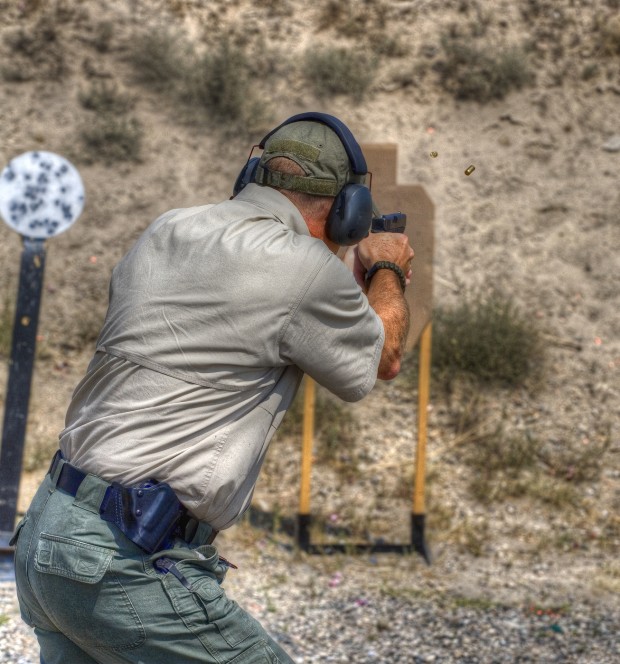The decision to carry a concealed weapon (CCW) is an important and life-altering event. It can be based on an epiphany, perhaps that you and your family are not as prepared or protected as you thought. Conceivably you or someone you know has been the victim of a crime. Perhaps while watching the news you see that sudden violence can happen anywhere. Regardless, from this day forward your life will forever follow a new path, so the decision to seek out training and carry a concealed weapon should not be made casually.
There are ramifications to making a poor choice in your training. These consequences can be criminal and civil problems but also, in the gravest extreme, you could be forced to live with the knowledge that you failed to protect someone you love. Or, you could be killed yourself.
So, how do you choose wisely? What should you look for a CCW trainer? First, look for someone certified by the state and county where you live and find someone with a good reputation. Searching for an NRA certified instructor is also a good idea. Finding a reputable CCW trainer can reduce your personal liability and meet the standards set by the state. So the more stable, experienced, and more broadly certified an instructor is, the better.
Next choose someone who will be there for you when you need them in court. Fly-by-night CCW trainers are everywhere, and disreputable ones even offer to “expedite” the process for a price. Check references and ask to see certifications. Do they have a web presence, is the local Sheriff familiar with them, have they been in business for a reasonable amount of time? And most importantly, have they successfully testified in criminal and civil court on use of force issues?
In other words, don’t bargain shop. You may save $25 off your class, but in one week or ten years when you need them to defend you in court will they be there for you? Would their testimony on your behalf actually help? Does the person you choose to train you bring a credible, responsible, professional, and knowledgeable presence to your defense?
You must also consider the quality of your training. Realize that law enforcement, competition, and military trainers are probably proficient, but most are more familiar teaching students with a known background and a shared level of experience. Cops in most states typically get 400-800 hours of academy training, of which at least 40 is dedicated strictly to shooting and a great deal of the rest is on critical thinking, crisis management, and use of force decision making. Military and “Special Forces” trainers have often not worked in a non-permissive CONUS environment of strict legal liability. They don’t generally operate or train with those who live in the more restrictive and legally/politically scrutinized civilian world. Competition shooters may be basing their instruction on competitive techniques designed to be fast and accurate, but off the range are tactically unsound.
There are exceptions in each of the categories above and many of the very best instructors have this type of background, but you must be sure they understand the uniqueness to training civilian CCW students–students with considerably different past training and different legal authority/constraints than the audience to which they are accustomed.
Remember that often the exact curriculum is probably set by the state, so a reputable instructor will follow this agenda. Someone who “goes off the reservation” so to speak may actually increase your liability. Typically, a CCW class is to shooting what a Hunter Safety course is to hunting. If you want more detailed and advanced shooting instruction, you will likely have to attend a separate class.
Once you have obtained basic CCW certification you will likely seek out more self-defense education. How good is good enough when it comes to protecting your life? How can you benchmark your skills to a known standard of self-defense to be sure in yourself?
Beyond the basics of shooting is the ever-expanding world of critical thinking, dynamic movement, and proxemics. In the next article we’ll discuss more progressive training and what to look for in an advanced firearms instructor.





